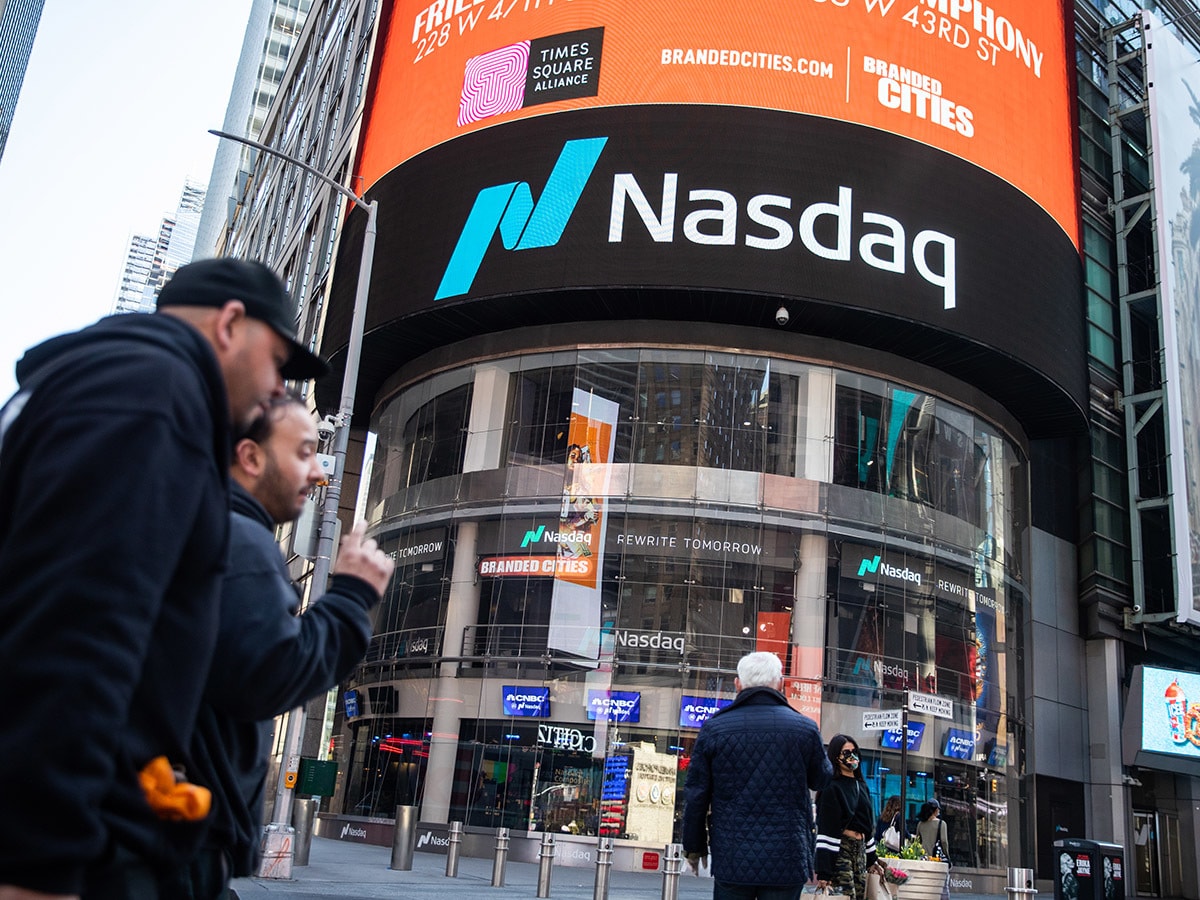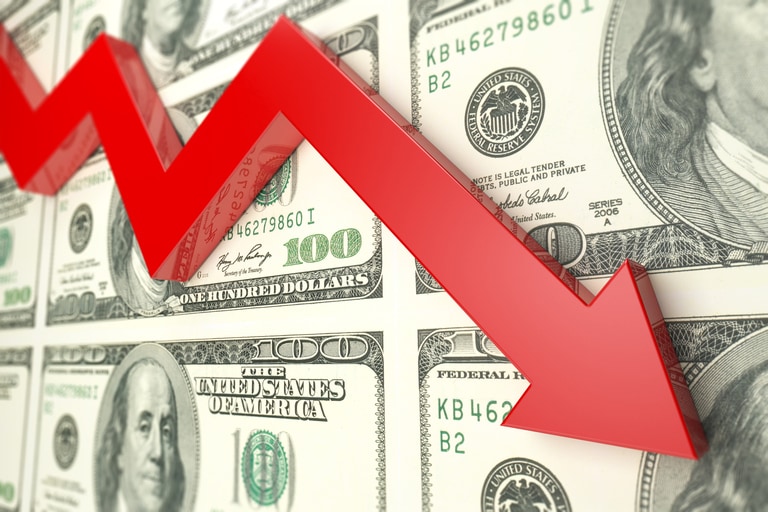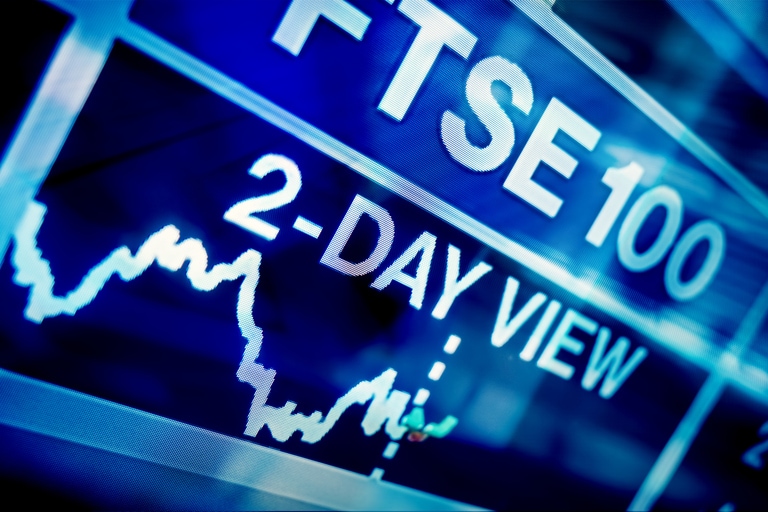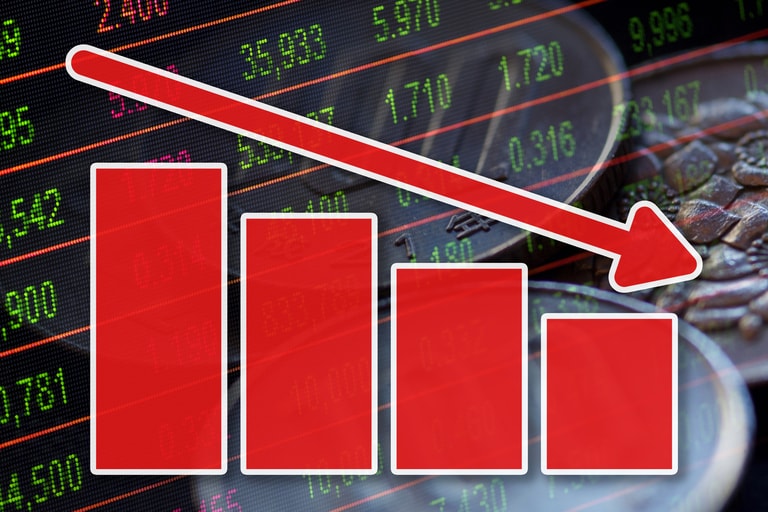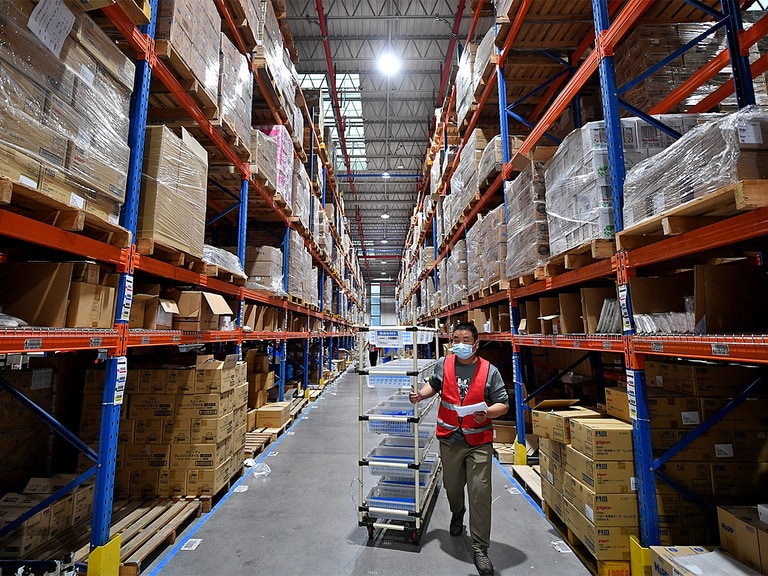After some big declines over the past couple of days, and hitting five-week lows yesterday, European markets started the day very much on the front foot in early trade. As the day has progressed, a lot of these gains have started to dissipate, and once US markets opened, the slide back from the highs of the day has accelerated.
Europe
The inability of equity markets to hold on to today’s initial gains doesn’t bode particularly well and speaks to a general lack of confidence more broadly about the economic outlook, and the ability of central banks to engineer a “soft landing” as they look to tackle inflation.
With the rolling lockdowns being experienced in China there were some concerns that this might have affected the performance of HSBC during its first quarter. HSBC management were certainly concerned about this when they laid out their guidance a few months ago, citing a weak growth outlook.
Today’s Q1 numbers appear to have seen the bank avoid these scenarios for now, despite a softening in both the Chinese, as well as the UK economy, prompting revenues to slip back to $12.46bn, although this decline was primarily driven by weakness in its Wealth management division.
The bank reported profit after tax of $3.4bn, a reduction of $1.1bn on the same quarter last year, primarily due to an increase in credit impairment charges of $600m, as a result of potential negative impacts from the Russia, Ukraine war. The Asia business and the UK business contributed the bulk of the banks’ profits before tax, with Asia adding $2.8bn and the UK $1.2bn.
Lending demand remained decent during Q1, however the bank warned that rising inflationary pressure, as well the prospect of further impairment provisions may well present risks to the outlook. This has seen the shares slide back after the bank warned that the impact of the Russia, Ukraine war and a weaker outlook in its China markets would mean that further stock buybacks were unlikely for now.
It’s been a tough 12 months for Primark owner Associated British Foods, with its share price languishing close to one-year lows over the past few weeks, and today’s trading update has done little to alleviate the pain, with the shares sliding to 9-year lows and below the March 2020 lows.
The retailer was hit hard by the various covid lockdowns due to not having an online operation, however despite these challenges the business has demonstrated enormous resilience, and rebounded strongly, not that you’d know it from the share price performance, with investors in an unforgiving mood.
Today’s Q1 numbers have seen revenues rise 25% to £7.89bn, while adjusted profit before tax rose to £666m, a rise of 109%. Its Primark business has been the main driver of this rebound with sales rising to £3.54bn, with the UK business driving the recovery. In Europe, the bounce back has been much more muted with consumer footfall still weak, while the US is trading well.
The food division has seen a sharp rise in input costs, eroding operating margins, and reducing operating profits by 9% to £330m, and it could well be this that is causing the further weakness in the share price today, along with the rest of the sector with Marks and Spencer also sliding sharply today.
As far as the outlook is concerned CEO George Weston said that price increases were likely to be necessary on a range of different items across its Primark range, while still expecting to deliver on its adjusted operating profits targets for the year. The company said it would pay an interim dividend of 13.8p per share.
Ocado shares have also fallen back sharply after the latest Kantar grocery market share survey saw the company fare really poorly on 12-week sales, falling -10.7%, with Morrisons and Asda also seeing double digit falls of -10.5% and -10.3% respectively. Tesco saw a decline of -4.8% and Sainsbury -7.7% with the big winners being Aldi and Lidl with gains of 4.2% and 4% in a sign that shoppers are already shifting towards the budget chains.
House builders have struggled in recent weeks over uncertainty over how much they will be compelled to contribute to the governments cladding fund. Concern over the impact of rising interest rates and inflation will have on the housing market has also weighed on sentiment. Taylor Wimpey’s share price has been languishing close to one-year lows over the last month or so, however judging by today’s latest trading update there appears to be little evidence of a decline in housing market activity.
Net sales were slightly lower from a year ago, while the total order book value was higher at £2.97bn, representing 10,957 homes. Trading is in line with expectations and the builder remains on track to restore operating profit margins to 21% to 22% by 2024.
US
After yesterday’s sharp rebound, US markets slipped back on the open, with the Nasdaq 100 giving up all of yesterday’s gains, as investors gear up for the start of big tech earnings with Microsoft and Alphabet due after the closing bell.
US treasury yields look set to decline for the third day in succession in a move that suggests that some parts of the market are de-risking away from equities. Such a move might appear to suggest that some investors are harbouring doubts that the Fed will be able to hike as much as is currently being priced, and that we’re also heading for a slowdown in economic activity.
When Microsoft agreed to buy Call of Duty maker Activision for $68.7bn back in January it was seen as another example of the big tech firms looking to broaden their reach further into online content and gaming as a means to supplement their revenue streams. Online gaming saw a huge growth spurt during the pandemic as more people looked for things to do while stuck at home. Last night’s Q1 Activision numbers would appear to show that like other things that boomed online during the pandemic that since the reopening of the economy people have found other things to do. Revenue came in well below last year’s numbers of $2.28bn, at $1.77bn, while profits also fell short of expectations at $0.64c a share. The number of hours users spent playing Call of Duty declined and this could well be another area that could start to feel the cost-of-living squeeze in the months ahead. Microsoft will be reporting its own Q3 numbers later today and is expected to see revenue slow slightly to between $48.5bn and $49.3bn, from Q2’s record $51.73bn. It will be interesting to see if Microsoft’s personal computing and gaming revenue also sees a slowdown, after Xbox content and services revenue saw a rise of 10% in Q2. Xbox live subscriptions aren’t cheap, and they aren’t exactly an essential item, so like Netflix we might see some evidence of declining consumer confidence.
We’ve also got Q1 numbers from Google owner Alphabet, with particular attention set to be focussed on the advertising business, with reports that businesses are holding back ad spend. With the stock split due to take place on July 15th. The company’s success has attracted scrutiny particularly around digital advertising with the business facing anti-trust lawsuits across a number of US states in the past few months. Profits are expected to come in at $25.82c, with the big question being whether Alphabet can sustain the type of revenue growth of 30% and above we saw last year at a time when costs have risen substantially. Last year the employee headcount rose by over 21k to 156,500.
Twitter shares are now likely to settle down after Tesla CEO Elon Musk finally bagged the deal, acquiring Twitter for $44bn after the board agreed to sell the company subject to shareholder approval. Tesla shares, on the other hand have fallen to one-month lows, after it was confirmed that not only was the acquisition being financed by a $12.5bn margin loan secured against the value of Musk’s Tesla shares, but that the other $21bn could well be raised by selling some of his Tesla shares.
In a positive sign for the US economy, UPS announced better than expected Q1 numbers, as revenues rose 6.4% to $24.4bn. Last year the company raised its prices to deal with the higher costs it was incurring because of supply chain disruptions and higher raw material prices. Despite these higher costs, profits also came in better than expected at $3.05c a share.
FX
The pound and the euro have continued to slide against the US dollar today, with the pound sliding below the 1.2700 and potentially on course for a move towards 1.2500. The latest public sector borrowing numbers for March rounded off a year that saw borrowing for 2021 come in at £151.8bn a significant decrease from last years, £317.6bn. These numbers while very high, were still better than expected and could improve further as final revisions come in.
The rise in the US dollar appears to be predicated on the belief that the Federal Reserve is likely to move much more aggressively on rates than either the Bank of England or the ECB.
The Japanese yen is starting to claw back some ground, despite the strength of the US dollar today ahead of this week’s Bank of Japan rate meeting. As the US dollar drifts back down from its recent highs, now would be the perfect time for the Bank of Japan, to give it a bit of a shove to squeeze out some of those US dollar longs and create a little more two-way risk. If they were to intervene it would be the first time since 1998.
Commodities
Oil prices have rebounded modestly after yesterday’s sharp sell-off as investors look to balance how much of an effect a sharp slowdown in demand from China will have when set against the resilience of demand elsewhere, in relation to global inventories.
Gold prices have rebounded from decent support at the $1,890 level where we have some decent support from the March lows. A decline in US yields appears to be helping on the margins, along with a slightly firmer tone in commodity prices.
Volatility
Glencore’s shares were pushed into focus again yesterday as the company found itself under pressure from activist investors angling for a move away from coal. Shares have been under assault for the last few days a whole raft of reasons and have now shed around 20% over the last week. Daily vol advanced to 173% against 70% on the month.
The Dollar/Rand trade continued its move lower yesterday, maintaining the pair’s standing as one of the most active amongst fiat currencies. Economic disruption locally and fears over rising US interest rates are weighing here, driving daily vol slightly higher than was posted on Friday to 20.46% whilst the monthly figure sits at 13.9%.
With commodities, the idea that rising interest rates would call time on any advance in lumber prices clearly needs a rethink after the underlying once again locked in gains above the $1000 mark. Seasonal demand is being flagged as responsible here but daily vol found its way to 277% against 187% on the month.
Finally, over in cryptos, Dogecoin saw heightened levels of price action as the token found renewed levels of interest off the back of Elon Musk’s successful bid for Twitter. There’s theoretically the potential here for this to drive wider acceptance, but would a lack of plurality here pose regulatory questions? With that in mind, this could continue to be an active trade in the weeks and months ahead. Daily vol advanced to 194% against 102% on the month.
CMC Markets erbjuder sin tjänst som ”execution only”. Detta material (antingen uttryckt eller inte) är endast för allmän information och tar inte hänsyn till dina personliga omständigheter eller mål. Ingenting i detta material är (eller bör anses vara) finansiella, investeringar eller andra råd som beroende bör läggas på. Inget yttrande i materialet utgör en rekommendation från CMC Markets eller författaren om en viss investering, säkerhet, transaktion eller investeringsstrategi. Detta innehåll har inte skapats i enlighet med de regler som finns för oberoende investeringsrådgivning. Även om vi inte uttryckligen hindras från att handla innan vi har tillhandhållit detta innehåll försöker vi inte dra nytta av det innan det sprids.
